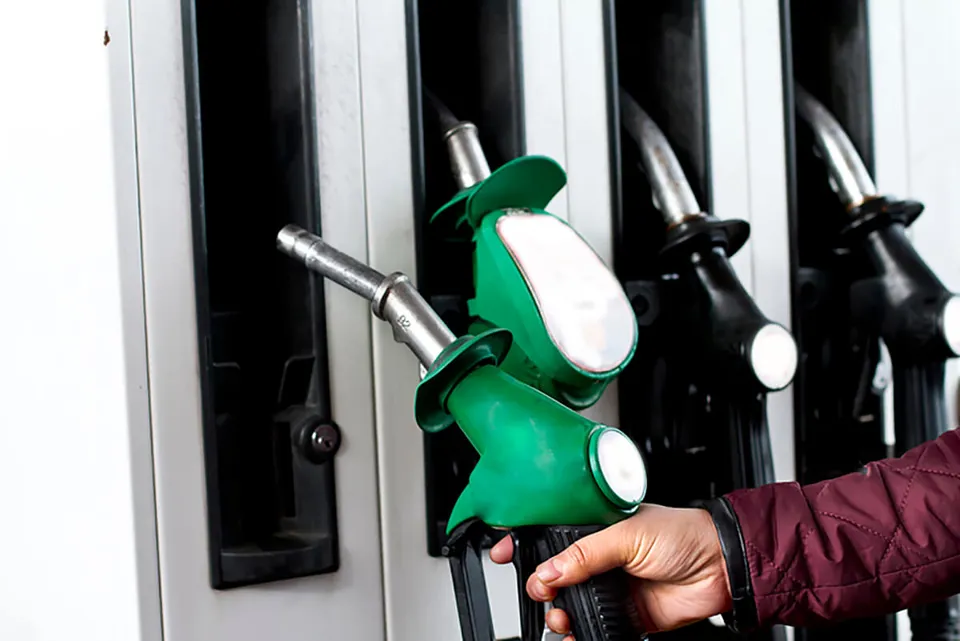The average price of diesel at the pumps remained largely static in February, rising from 101.11p to 101.18p, despite a 2.5p rise in its wholesale price.
While this is a turnaround from January which saw a 5p reduction, the average price of diesel is still nearly a penny cheaper than that of petrol (diesel – 101.18p v petrol 101.93p), according to the latest RAC Fuel Watch report.
The average forecourt price of diesel has been lower than petrol since January 25, 2016, but is likely to switch back again in March.
Meanwhile, the average price of petrol fell slightly in February, marking eight consecutive months of falls.
Motorists have now enjoyed eight months of falling unleaded prices from the beginning of July 2015 when the average price of a litre was 117p a litre. At the end of February, the average price of petrol at forecourts was 101.93p – a drop of 15p and a saving of £8.25 on filling up an average 55-litre family car.
February saw a small fall of 0.16p in the price of unleaded at the pumps. The wholesale price of petrol also finished the month 2p a litre cheaper than at the start due to increased petrol production, which should help to keep pump prices at their current level in the short term, or possibly even reduce them very slightly in March.
Average supermarket prices of both petrol and diesel hardly changed in February: petrol started the month at 99.88p and finished at 99.86p whereas diesel rose marginally: 97.96p to 98.24p.
Both the oil price and the exchange rate – the two factors which have the greatest effect on fuel prices aside from tax – were the subject of much attention in February.
The pound lost ground against the dollar throughout the month, falling from $1.44 on 1 February to $1.39 by the end, while oil underwent a late price surge to finish at $35.80 having started the month at $32.75.
RAC fuel spokesman Simon Williams said: “Motorists are still benefiting from low prices at the pumps, with the supermarkets having held their petrol prices under £1 a litre, thanks to a depressed wholesale price.
“In fact the wholesale price of petrol has fallen due to refineries scaling down heating oil production and switching instead to producing more unleaded, together with the US refining more petrol as it gears up for the American driving season which starts in May. This tends to have the temporary short-term effect of reducing the wholesale price, but this may change as demand for petrol picks up in the States.
“While the average pump price of diesel has been cheaper than petrol since the end of January this may not last much longer due the increase in petrol production and its lower wholesale price.
“But the additional supply of diesel on the wholesale market brought about by greater refinery capacity in Saudi Arabia and India should mean prices remain comparatively stable for diesel motorists at the pump.
“If it proves to be the case that oil prices have bottomed out, the RAC will be monitoring the effect on pump prices even more closely for any sign of the infamous ‘rocket and feather effect’ where prices go up far faster than they came down.”
Is a fuel duty rise looming on the horizon?
Williams added: “Putting the oil price and the exchange rate to one side, motorists will be concerned as to whether the Chancellor decides to tinker with fuel duty in the upcoming Budget on 16 March.
“Throughout the last parliament he chose to maintain an even keel by freezing duty at 57.95p a litre after his penny a litre cut in the 2011 Budget, but we fear he may now seek to take advantage of low oil prices to increase it.
“Both independent modelling and the Treasury’s own analysis have demonstrated that an increase in fuel duty has a negative impact on economic growth and therefore we vehemently oppose any rise in fuel duty because the country would the pay the price for this in the longer term.
“Motorists will be unforgiving of the Chancellor should he seek to squeeze more tax out of them when they are already amongst the highest taxed on fuel in Europe.”

















Login to comment
Comments
No comments have been made yet.